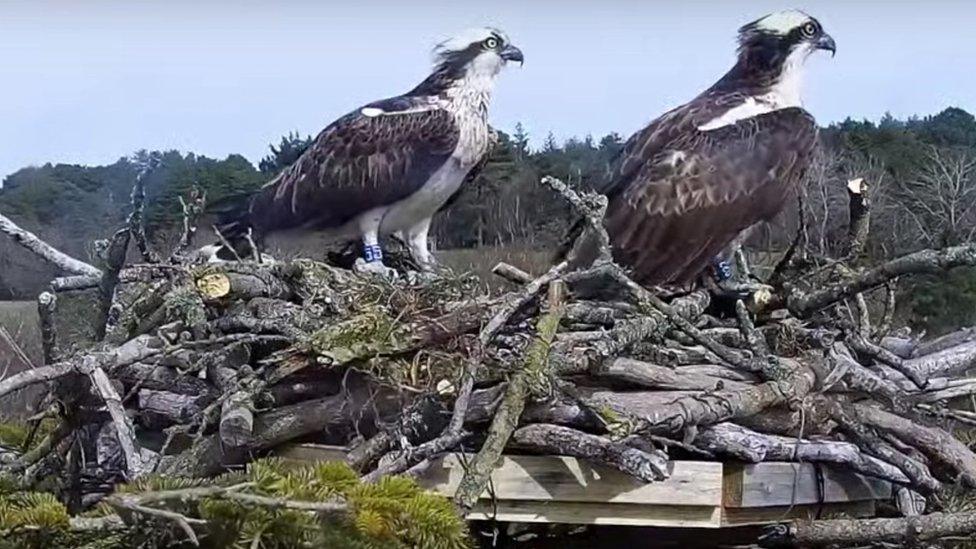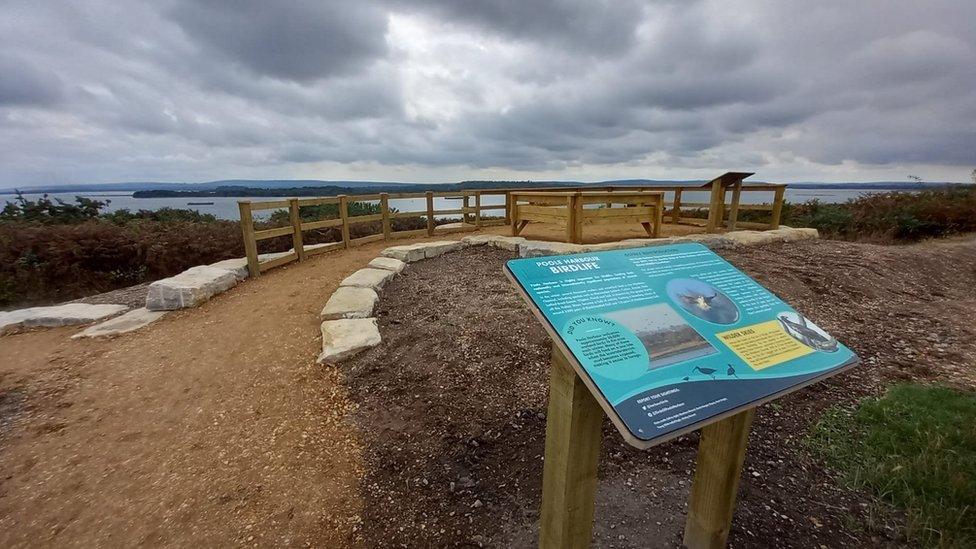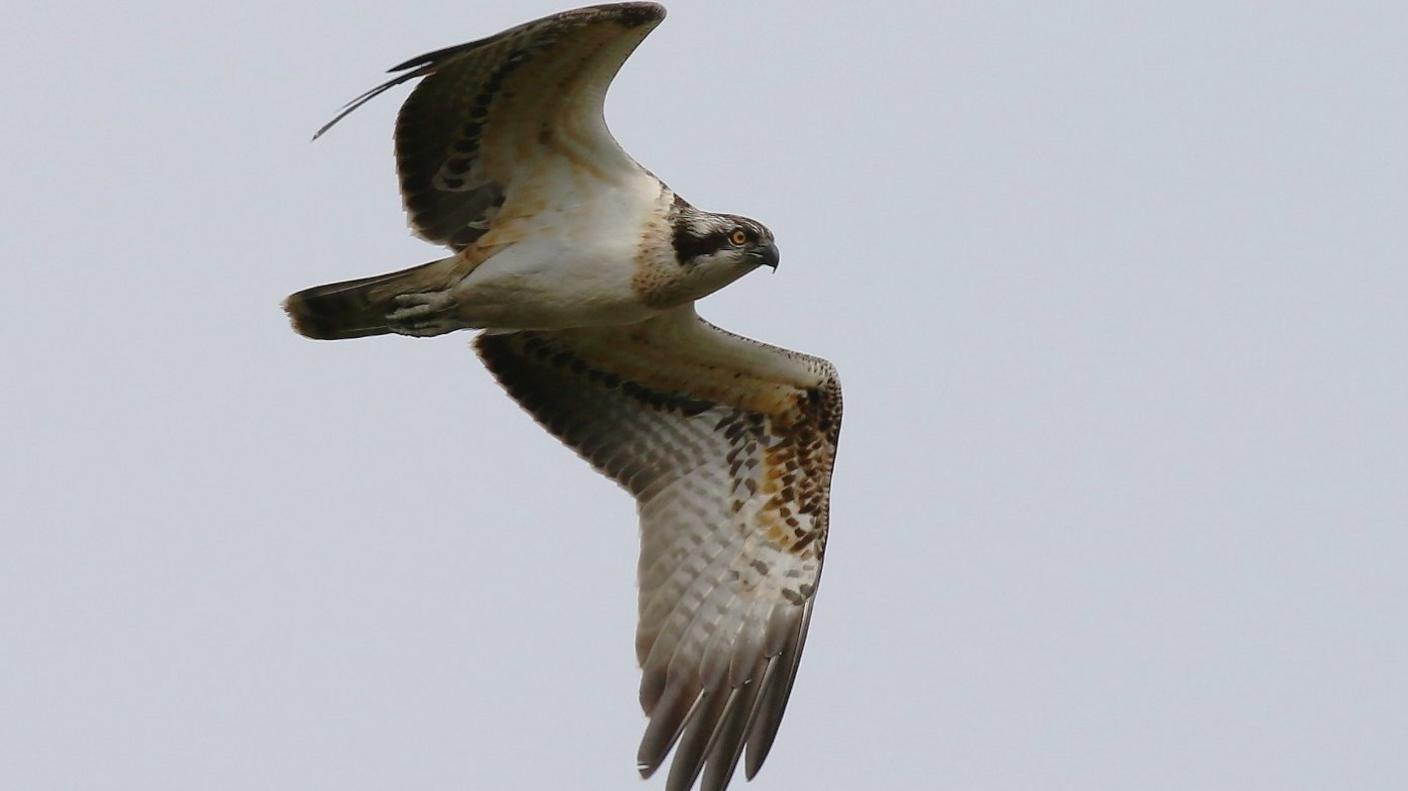Poole Harbour osprey and white-tailed eagle viewing deck opens
- Published

Two adult ospreys successfully hatched two chicks earlier this year
An observation point has been created to allow views of ospreys and white-tailed eagles on the Dorset coast.
The deck at Ham Common Nature Reserve looks out over Poole Harbour where the birds of prey can be seen hunting.
An osprey reintroduction programme began in Poole Harbour in 2017, aiming to establish a breeding population.
Two osprey chicks hatched earlier this year - thought to be the first on the south coast in more than 200 years - although one has since died.

The wheelchair-accessible viewpoint at Ham Common Nature Reserve looks out over Poole Harbour
The wheelchair-accessible viewpoint was created by BCP Council and the Birds of Poole Harbour charity which runs the programme to bring ospreys back to southern England.
Spring saw initial success for the project, with a first breeding attempt made by a pair of ospreys who went on to lay three eggs in late April.
Two hatched in early June however one of the fledglings was killed by a goshawk earlier this month.
In addition to osprey, the new observation platform also allows visitors to spot White-tailed Eagles, with several also present in the harbour following a reintroduction programme centred on the Isle of Wight.
Footage of the osprey nest has been streamed on a webcam
The pair of ospreys first met last summer, although the male was too young to breed.
When news of the first egg in the nest emerged, TV naturalist Chris Packham said it was a "sensational" development.
The hatchings in June were thought to have been the first in southern England since 1847.
The fish-eating birds of prey historically bred across the British Isles but populations drastically declined in the Middle Ages.
In 2017, Birds of Poole Harbour and the Roy Dennis Wildlife Foundation began transferring six-week-old chicks from sustainable populations in Scotland.

Follow BBC South on Facebook, external, Twitter, external, or Instagram, external. Send your story ideas to south.newsonline@bbc.co.uk, external.
- Published29 April 2022

- Published20 June 2017
